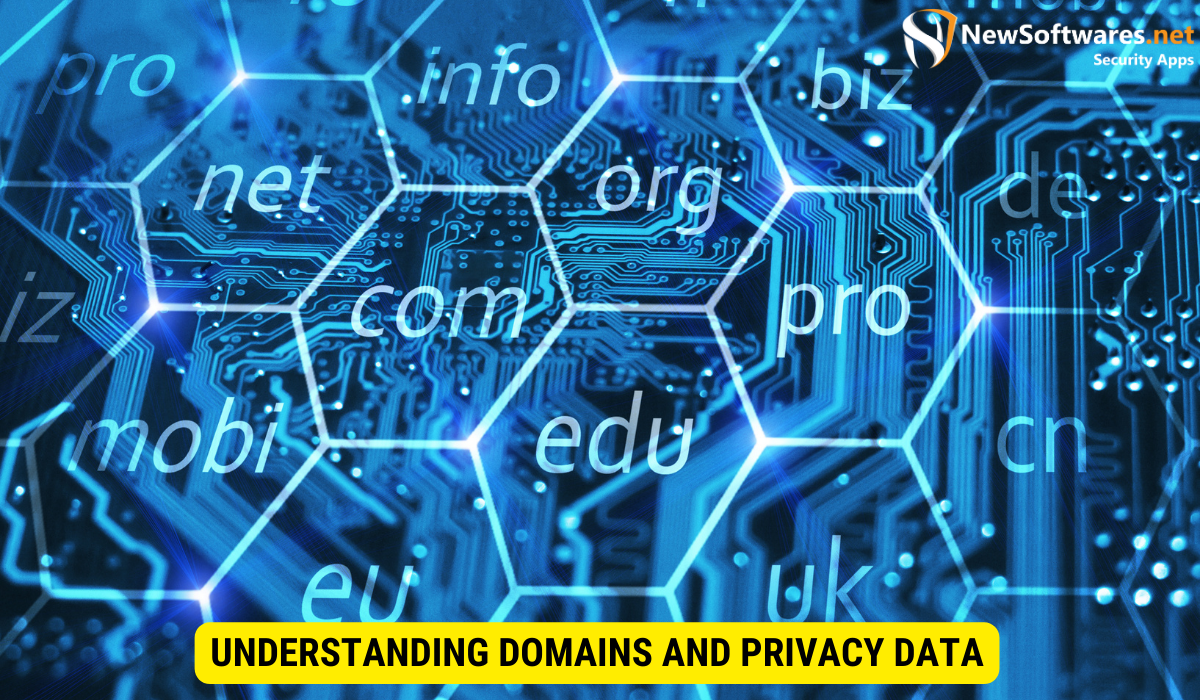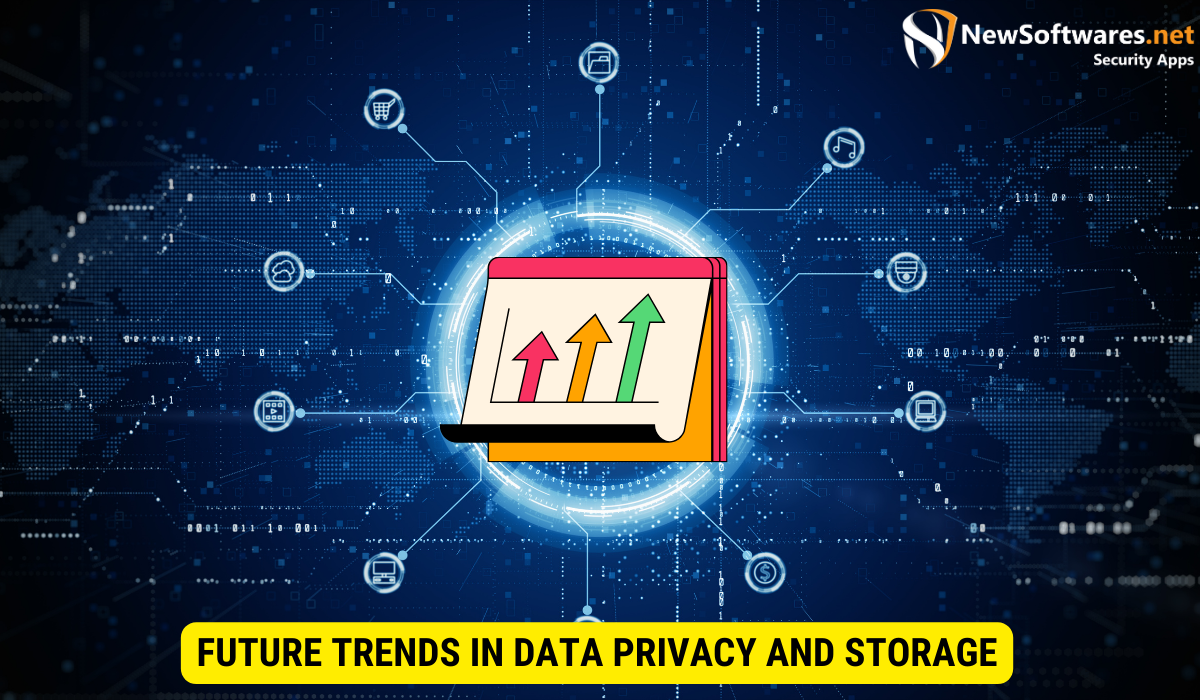Domains can access privacy data provided by users and store it on local hard drives and disks, but they must implement robust security measures to safeguard this data. It’s essential to encrypt sensitive information, use secure transmission protocols, and adhere to privacy regulations.
Understanding Domains and Privacy Data

To comprehend whether domains can access privacy data and store it on local hard drives and disks, it is essential to have a clear understanding of what domains and privacy data entail.
Definition of Domains
In the context of the internet, a domain refers to a unique address that serves as the online identity for a website. It typically comprises a name followed by a top-level domain (TLD) such as .com, .org, or .net.
Domains play a vital role in the operation of the Internet. They serve as a means for users to reach websites and for website proprietors to establish their online identity. Each domain corresponds to a particular website and enables users to explore web pages and access a wide range of online content.
For example, when you type “www.example.com” into your web browser, the domain “example.com” is used to locate and display the corresponding website. Domains can be registered and managed through domain registrars, organizations responsible for assigning and maintaining domain names.
What is Privacy Data?
Privacy or personal data encompasses any information linked to an individual. This comprises personally identifiable information such as names, addresses, email addresses, phone numbers, and financial data.
Privacy data plays a crucial role in our digital lives. Various entities, including websites, online services, and applications, collect it for different purposes, such as user authentication, personalization, and targeted advertising. Protecting privacy data is paramount to ensure the security and confidentiality of individuals’ personal information.
Regarding domains, whether they can access and store privacy data on local hard drives and disks. Domains themselves cannot access or store privacy data directly. Instead, the websites hosted on those domains may collect and store privacy data.
Website owners, administrators, and developers are responsible for handling privacy data securely and competently. They must implement appropriate security measures, such as encryption and access controls, to protect privacy data from unauthorized access, disclosure, and misuse.
Furthermore, website owners should provide clear and transparent privacy policies outlining how they collect, use, and protect data. Users should be informed about the types of data collected, the purposes for which it is used, and any third parties with whom it may be shared.
In conclusion, while domains do not directly access or store privacy data, the websites hosted on those domains may collect and store such data. Website owners must prioritize the security and privacy of users’ personal information by implementing appropriate measures and providing transparent privacy policies.
The Relationship Between Domains and Privacy Data
Now that we grasp domains and privacy data, let us explore their relationship and how parts can access and handle privacy data.
Domains are an integral part of the online ecosystem, serving as the virtual addresses where websites reside. They provide a unique identifier for websites, allowing users to access them easily. However, domains also play a significant role in collecting and storing privacy data.
How Domains Access Privacy Data
Domains can obtain privacy data through various means, such as user interactions on websites, filling out online forms, subscribing to newsletters, making online purchases, or participating in surveys. When users provide their personal information, domains may collect and store it for legitimate purposes.
For instance, when users register on a website, they are often required to provide their name, email address, and other relevant details. The domain then stores this information to facilitate user account management and provide personalized services. Similarly, when users make online purchases, domains may collect billing information to process transactions securely.
It is important to note that domains should always adhere to privacy laws and regulations when collecting and handling user data. They must obtain user consent and communicate how the collected data will be used and protected.
The Role of Domains in Data Storage
Domains play a crucial role in the storage of private data. Once acquired, domains typically store this information securely in databases or other storage systems. It is essential for domains to implement appropriate security measures to safeguard this sensitive data from unauthorized access or breaches.
Encryption techniques, firewalls, and access controls are some of the security measures that domains employ to protect privacy data. Regular security audits and updates are necessary to ensure the storage systems remain resilient against emerging threats.
Furthermore, domains should have clear data retention policies in place. They should only retain privacy data for as long as necessary and securely dispose of it once it is no longer needed. This helps minimize the risk of data breaches and ensures compliance with privacy regulations.
In conclusion, domains are not just virtual addresses but also critical players in collecting and storing privacy data. They are responsible for handling this data carefully and implementing robust security measures to protect user privacy.
Storing Privacy Data on Local Hard Drives and Disks
Although privacy data is commonly stored in databases managed by domains, there are instances where it may be stored on local hard drives and disks.
The Process of Storing Data Locally
When privacy data is stored locally, it resides on physical devices, such as hard drives or disks, located within the domain’s infrastructure or on the user’s device itself. This data is often encrypted to ensure its confidentiality and protection from unauthorized access.
Risks and Benefits of Local Data Storage
Storing privacy data locally presents both risks and benefits. On one hand, local storage can give users greater control over their data, as they have direct access to it. On the other hand, it introduces the risk of physical damage or loss, which could result in permanent data loss if not appropriately backed up.
Privacy Concerns and Data Protection Measures
Given the sensitivity of privacy data, addressing the potential privacy concerns associated with domain access and storage is crucial.
Potential Privacy Issues with Domains
Domains are responsible for treating privacy data with the utmost care and respect for user privacy. However, there is always a risk of data breaches, unauthorized access, or misuse of personal information. Domains must take steps to mitigate these risks by implementing strong security measures, conducting regular security audits, and adhering to privacy regulations.
Implementing Data Protection Measures
To safeguard privacy data, domains should encrypt sensitive information, utilize secure transmission protocols (such as HTTPS), regularly update software and security patches, and enforce strict access controls. Additionally, domains should establish clear privacy policies and consent mechanisms to ensure transparency and user control over their data.
Future Trends in Data Privacy and Storage

As technology evolves, so does the data privacy and storage landscape. Let us explore some predicted changes in domain access to privacy data and innovations in local data storage solutions.
Predicted Changes in Domain Access to Privacy Data
In the future, domain access to privacy data will likely become more regulated and subject to stricter consent requirements. Users will have increased control over the data they share, and domains must demonstrate transparency and accountability in handling personal information.
Innovations in Local Data Storage Solutions
Technological advancements have paved the way for innovative local data storage solutions. These include decentralized storage networks utilizing blockchain technology, secure hardware devices, and sophisticated encryption algorithms. Such solutions aim to enhance the security and privacy of stored data while providing users with seamless access and control.
Key Takeaways
- Domains can access privacy data when users willingly provide it during online interactions.
- Data stored by domains should be protected through robust security measures.
- Local storage of privacy data offers both benefits and risks.
- Privacy concerns surrounding domains can be addressed by properly implementing data protection measures.
- Future trends include increased user control over privacy data and local data storage solutions advancements.
FAQs
Can domains collect personal data without consent?
Domains should not collect personal data without obtaining the user’s consent. Consent is a fundamental principle in handling privacy data and is typically required by privacy regulations.
What steps can users take to protect their privacy data?
Users can protect their privacy data by being cautious about the information they share online, utilizing strong and unique passwords, regularly updating software and devices, and being mindful of privacy settings on websites and applications.
How can domains ensure data security in the event of a data breach?
Domains can enhance data security by employing encryption techniques, segmenting and isolating sensitive data, implementing intrusion detection and prevention systems, conducting frequent security audits, and having an incident response plan to address and mitigate the impact of a breach.
Conclsuion
By incorporating the above information, we can better understand how domains access privacy data and store it on local hard drives and disks. It is crucial for domains to prioritize data protection measures and for users to be informed and proactive about online privacy. With the continuous evolution of technology, staying updated on emerging trends and innovations in data privacy and storage is essential to ensure a secure and privacy-centric digital future.
